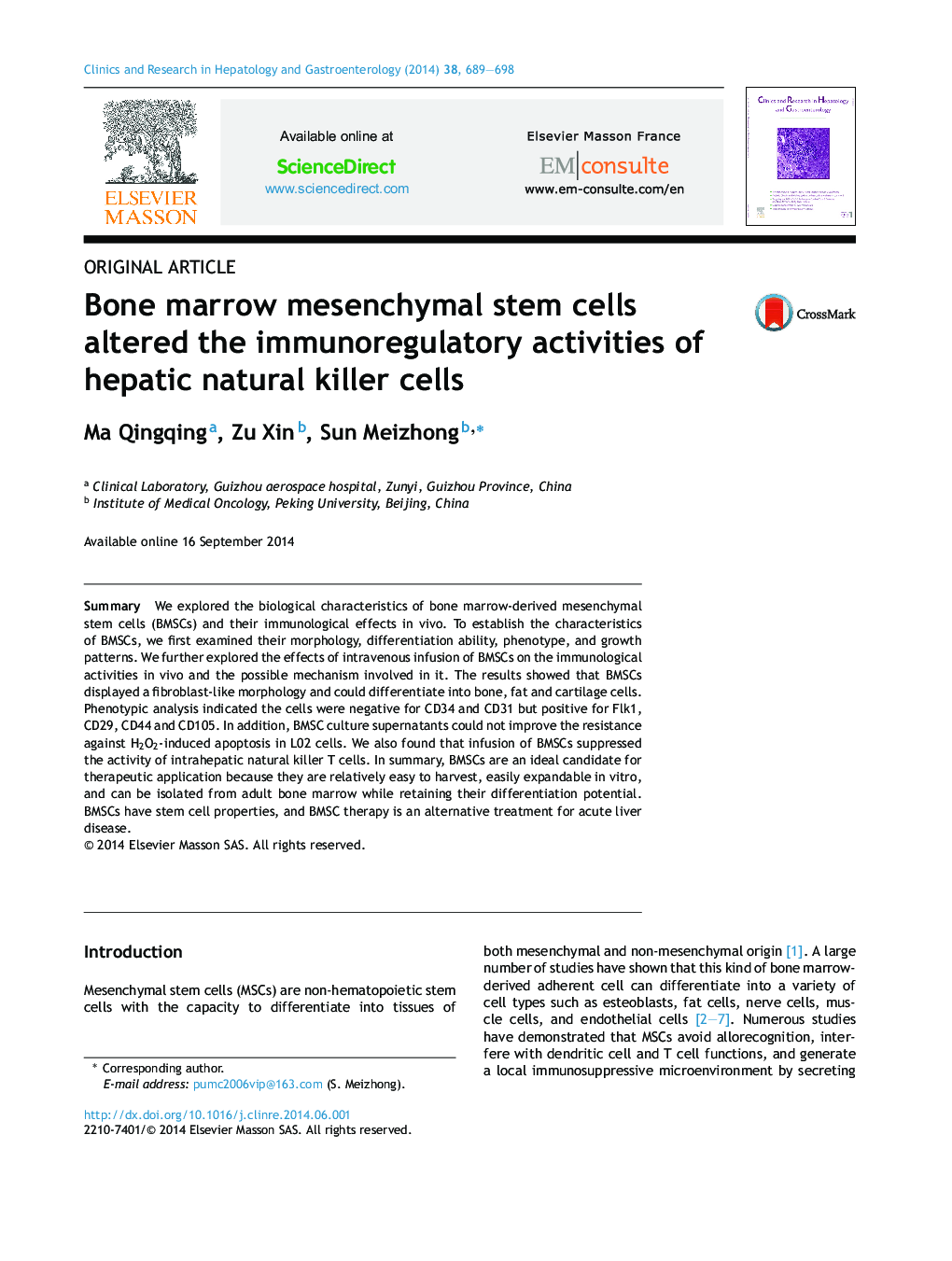| Article ID | Journal | Published Year | Pages | File Type |
|---|---|---|---|---|
| 3286141 | Clinics and Research in Hepatology and Gastroenterology | 2014 | 10 Pages |
SummaryWe explored the biological characteristics of bone marrow-derived mesenchymal stem cells (BMSCs) and their immunological effects in vivo. To establish the characteristics of BMSCs, we first examined their morphology, differentiation ability, phenotype, and growth patterns. We further explored the effects of intravenous infusion of BMSCs on the immunological activities in vivo and the possible mechanism involved in it. The results showed that BMSCs displayed a fibroblast-like morphology and could differentiate into bone, fat and cartilage cells. Phenotypic analysis indicated the cells were negative for CD34 and CD31 but positive for Flk1, CD29, CD44 and CD105. In addition, BMSC culture supernatants could not improve the resistance against H2O2-induced apoptosis in L02 cells. We also found that infusion of BMSCs suppressed the activity of intrahepatic natural killer T cells. In summary, BMSCs are an ideal candidate for therapeutic application because they are relatively easy to harvest, easily expandable in vitro, and can be isolated from adult bone marrow while retaining their differentiation potential. BMSCs have stem cell properties, and BMSC therapy is an alternative treatment for acute liver disease.
